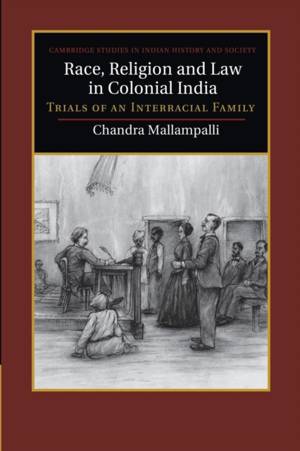
- Afhalen na 1 uur in een winkel met voorraad
- Gratis thuislevering in België vanaf € 30
- Ruim aanbod met 7 miljoen producten
- Afhalen na 1 uur in een winkel met voorraad
- Gratis thuislevering in België vanaf € 30
- Ruim aanbod met 7 miljoen producten
Zoeken
€ 60,95
+ 121 punten
Uitvoering
Omschrijving
How did British rule in India transform persons from lower social classes? Could Indians from such classes rise in the world by marrying Europeans and embracing their religion and customs? This book explores such questions by examining the intriguing story of an interracial family who lived in southern India in the mid-nineteenth century. The family, which consisted of two untouchable brothers, both of whom married Eurasian women, became wealthy as distillers in the local community. When one brother died, a dispute arose between his wife and brother over family assets, which resulted in a landmark court case, Abraham v. Abraham. It is this case which is at the center of this book, and which Chandra Mallampalli uses to examine the lives of those involved and, by extension, of those - 271 witnesses in all - who testified. In its multilayered approach, the book sheds light not only on interracial marriage, class, religious allegiance, and gender, but also on the British encounter with Indian society. It shows that far from being products of a "civilizing mission" who embraced the ways of Englishmen, the Abrahams were ultimately - when faced with the strictures of the colonial legal system - obliged to contend with hierarchy and racial difference.
Specificaties
Betrokkenen
- Auteur(s):
- Uitgeverij:
Inhoud
- Aantal bladzijden:
- 288
- Taal:
- Engels
- Reeks:
Eigenschappen
- Productcode (EAN):
- 9781107487543
- Verschijningsdatum:
- 5/02/2015
- Uitvoering:
- Paperback
- Formaat:
- Trade paperback (VS)
- Afmetingen:
- 152 mm x 229 mm
- Gewicht:
- 385 g

Alleen bij Standaard Boekhandel
+ 121 punten op je klantenkaart van Standaard Boekhandel
Beoordelingen
We publiceren alleen reviews die voldoen aan de voorwaarden voor reviews. Bekijk onze voorwaarden voor reviews.











